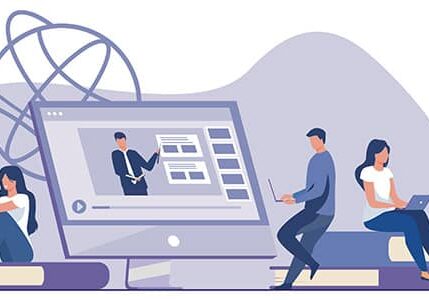What does it Mean to be Educated?
Updated: July 11, 2022
Published: January 24, 2022

January 24 was World Education Day. But what does it mean to be educated in 2022?
The Latin root of the word educate is “exducere”: to lead out of. The idea is that the educational process leads you out of your former self into a new self: more knowledgeable, more skilled, wiser, and more experienced.
While this notion is as old as the hills and incorporates many formal and informal dimensions of learning to this day, the way that learning has been conceptualised through different historical paradigms has changed quite significantly.
Before the onset of compulsory education in the 19th Century, an educated person was someone privileged to be part of a small group of initiates or royalty. Powerful, arcane knowledge was placed in the hands of the few and these few were venerated for this. The structure of the ancient world was fiercely hierarchical and elitist when it came to any sort of formal education: those who could read and write were scribes, priests, and leaders.
Compulsory education brought to the fore the democratisation of education and, with it, the more standardised model whereby every child would be expected to know a certain number of things: the dates and names of their national history, core elements of literacy and numeracy, and scientific facts. Education was used to forge nation-state identity across millions of people.
The economic boom of the post-World War II era made the previously inaccessible pathway of a university education a more popular and accessible option, at least in the so-called Western world. The vision of the 1950s was one whereby an education would stop after high school or, perhaps university, when young people would be recruited by firms, sometimes literally right after their graduation ceremonies and a long career could be expected to ensue. In this heyday of middle-class growth and rapid economic expansion, education was seen as one part of the conventional pathway that many would follow to a tranquil retirement. Needless to say, this vision was very far from the realities of most people on the planet, mainly in the so-called global south, who were still not accessing schools or universities.
The turn of the 21st Century ushered in the paradigm of the knowledge economy with the widespread impact of the worldwide web making information more easily available and the possibilities of self-education more salient: now education could be totally de-institutionalized and, more radical still, the amount of knowledge that a person would have to store in their minds could be questioned since this information would be ubiquitously and consistently available through the web. The idea of an educated person started to shift from what someone knew to what they could do, how well they could solve problems and interact with others. (Whether it is actually true that people can get by with knowing less in the 21st Century is a problematic idea, of course, one I would question quite strongly).
Today’s world, marked by the Covid-19 pandemic and rise of social justice movements, has morphed the idea of what it means to be educated once more: the emphasis is more squarely on questions of mental health, mindfulness, compassion, empathy, and sustainability. Coaching models are used more and more in teaching while the content of the curriculum is being questioned for the historical and cultural bias it contains. Today, the educated person is expected to be more interpersonally sensitive than ever before. At the same time, the pressures on Generation Z, both economic and social, have made issues of stress and anxiety major factors in schools and universities. To be educated is to be resilient.
So what does World Education Day mean for you? At the University of the People, we are doing what we can to bring down the walls that still prevent too many people from learning, this to take us closer to UN’s sustainable goal 4: to “ensure inclusive and equitable quality education and promote lifelong learning opportunities for all.”
Perhaps the ongoing idea, the one that transcends all of these paradigms, is the idea that true learning is a decision you take, to want to know, to be curious, to be a lifelong learner, no matter the circumstances. With this attitude, learning never stops, everything and everyone becomes a teacher: as Lao-Tzeu said, thousands of years ago, “when the student is ready, the teacher appears”.
